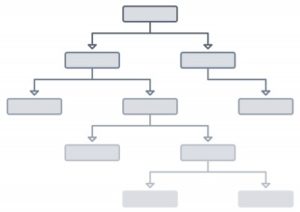In this issue of “Raising the Bar“, Debra L. Bruce presents the first of a three-part series addressing the creation of law office systems for increased efficiency, improved quality control and cost reductions. As a bonus, systems help lawyers to focus on and enjoy their law practice more.
Why Law Office Systems Matter
Increased competition, downward pressures on fees, and elevated client expectations require lawyers today to respond faster while maintaining high quality. Law firms and individual attorneys need structural aids to improve productivity and assist in quality control. Systems let lawyers spend more of their time on the high level, challenging work they enjoy most.
1. Delegation improves cost effectiveness. If you bill for your legal services on a flat fee basis, your profits go up as your time invested goes down, so identify what can be handled by someone at a lower rate than yours. Even if you bill on an hourly basis, you lose money if you spend time dealing with administrative matters like setting appointments, opening new client matters, filing, invoicing, paying bills, managing payroll, talking to technical support and archiving closed matters. You also lose money if you have to write off some of your time to keep the aggregate bill within client expectations, when you could have been more efficient or a lower paid person could have done some of the work. Delegating what you dislike also lets you focus on more interesting work, enhancing your ability to remain productive.
2. Delegate more by developing systems. Often attorneys don’t delegate something because it takes too long to tell someone else how to do it. Once you develop a documented system, the system can guide your staff and less experienced lawyers on the proper processes to implement. That reduces or even eliminates the time you invest in instruction, supervision and review.
3. Systems improve quality. They reduce errors by providing step by step procedures and checklists. Less experienced people don’t have to guess what is needed, based on inadequate knowledge or understanding, when the system tells them what to do. Even you and the experienced staff members are less likely to forget a step when it is documented and systematized. You’ll sleep better when you don’t wake up in the middle of the night worrying about whether something fell through the cracks.
4. Become more system dependent than people dependent. When you have a clearly defined system with documented procedures, your office doesn’t come to a grinding halt when a valuable staff member takes a vacation, gets sick, changes jobs or gets hit by the proverbial bus. Other staff members or even temporary personnel can fill in to keep the office functioning. Equally important, everyone else can function without your input while you travel for business, focus your attention on more complex matters, or take a well-deserved vacation.
5. Reduce costs by becoming more system oriented. With systems in place, you can keep your expenses down because you can engage less experienced people. Your processes and procedures guide neophytes in how to do the job. You also avoid increased expenses for expediting fees and overnight deliveries when your system accounts for typical time frames required.
Click to read Part 2 and Part 3
Post adapted with permission from an article by Debra L. Bruce in the August 15, 2012 issue of The Legal Intelligencer. (c) 2012 ALM Media Properties LLC. Further duplication without permission is prohibited.

